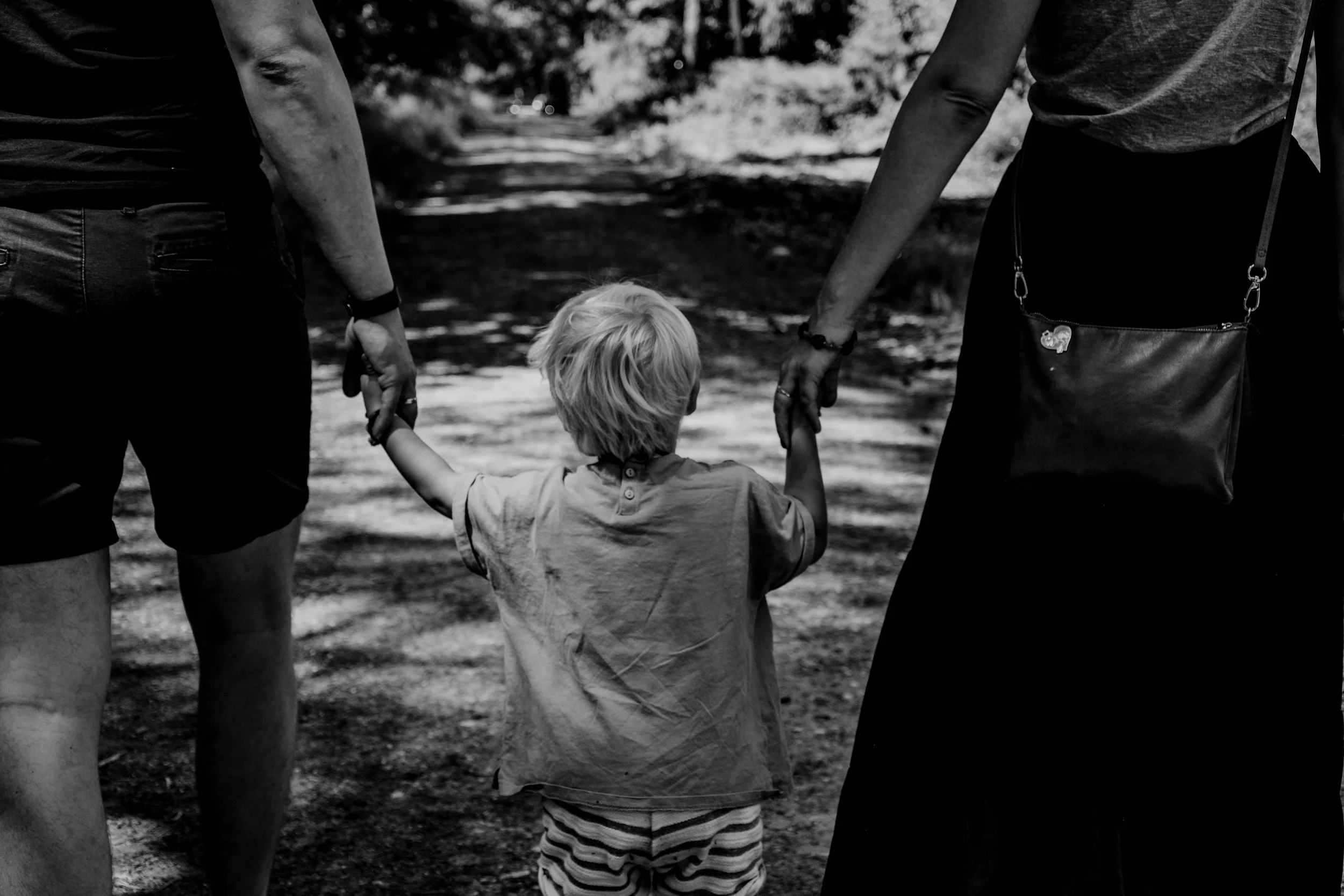When Presence Feels Like Drowning | Healing Inherited Trauma
She checked her phone 47 times during her daughter's dance recital.
Not because she didn't care.
But because she couldn't stop.
Sarah sat across from me, her body vibrating with an energy I could feel from my chair. A surgeon who saved lives by day and lost moments by night. As she spoke about missing her daughter's childhood, I noticed her breathing—rapid, shallow, like she was running a marathon while sitting still.
"I built this gorgeous life," she said, "but I can't actually be in it."
I watched her hands grip the armrest, knuckles white. Her nervous system was telling a story her words couldn't capture.
When I asked about her childhood, the pieces fell into place.
Sarah's parents were immigrants—brilliant, driven survivors who'd fled their country with nothing. They built their American dream through 18-hour workdays, through constant vigilance, through never stopping. Their trauma lived in perpetual flight mode, and they passed it down like a family heirloom.
"Lazy hands make hungry children," her mother would say in their native language, scrubbing floors at 2am between her day shifts.
Sarah learned: Rest equals danger. Stillness equals failure.
Being present means letting down the people who sacrificed everything. This early emotional neglect—not malicious, but born of survival—shaped every cell in her body.
Her Achievement Became her Emotional Armor
In our trauma therapy work, I tracked her somatic patterns. When she talked about her kids, her eyes would dart across the room. When she mentioned rest, her forehead would scrunch and her shoulders would tighten. Her body was stuck in her parents' survival response—decades later, an ocean away from the original threat.
"Let's try something," I said.
"Notice what happens in your body when you imagine sitting with your daughter for 10 minutes.
No phone. No agenda."
Her jaw clenched at the thought. .
"It feels like drowning," she whispered.
That's when we both understood: Her body had never learned that connection could exist without productivity.
That she could be loved without performing. That attachment parenting could happen through simple presence.
Building Presence Capacity in 30 second Increments
Our somatic therapy sessions became about tolerating stillness in 30-second increments. Not meditation—just noticing. The way her son's hair curled in the humid air. The sound of her partner breathing beside her at night. The warm water splashing on her back in the shower.
At first, the discomfort was unbearable.
But here's what surprised us both: As she learned to stay with the discomfort, something shifted. The more she could tolerate the anxiety of being still, the more peaceful she became.
"It's like I'm finally connected to reality," she told me one day, tears streaming. "Instead of constantly escaping it."
This is what trauma and somatic therapy offers—a way to rewire the nervous system's old patterns, to heal the emotional pain that lives in the cells of the body.
Six months in, Sarah called me from her car, sobbing.
"I just sat through Emma's entire school play. No phone. I watched her be a tree for seven minutes straight."
I could hear it in her voice—not just pride, but wonder. The discovery that presence could be its own form of excellence. That her worth existed beyond her next surgery, her next achievement, her next proof of value.
She was learning attachment parenting in real time—not from books, but from her body's growing capacity to simply be with her children.
Over the last 15 years of offering trauma therapy with high achievers, I've learned:
Those who find their way back:
- Learn to track sensation through somatic therapy
- Find relationships where they can just “be”
- Tolerate the grief of what they missed while surviving
- Discover that discomfort eventually turns into peace
- Heal their own emotional neglect to break the cycle
Those who stay trapped:
- Try to "master" presence like another skill
- Avoid the somatic discomfort of slowing down
- Can't tolerate feeling ordinary [even briefly]
- Keep choosing productivity > connection
Sarah still excels at surgery—that didn't change. But now she can excels at presence, too.
She's learned that her parents gave her the gift of survival.
Now she's giving her children the gift of a mother who can simply be with them—true attachment parenting in action.
Last week she texted me a photo from her daughter's recital. But this time, the photo was taken after the performance. "I was too busy watching," she wrote. "Too busy feeling my life."
An Advanced Training and Consultation for Therapists Ready to Go Deeper
This work—sitting with high achievers whose bodies are stuck in generational survival patterns—requires more than traditional talk therapy. It demands we understand the somatic roots of emotional neglect and how it manifests in the inability to be present.
If you're a therapist seeking trauma training for therapists that goes beyond theory into embodied practice, I'm opening applications for my comprehensive trauma mastery program.
We explore how somatic therapy can help clients heal generational patterns and rediscover their capacity for presence and authentic attachment.
The world needs therapists who understand that sometimes the most loving parents are the ones who can't stop moving long enough to feel their love.
Who recognize that emotional neglect often wears the mask of excellence. Who know how to help bodies learn what minds already understand: that we are worthy of love just for being.
Click here to apply to get on the waitlist for the trauma mastery training for therapists program.
Looking forward to meeting you soon!
Warmly,






